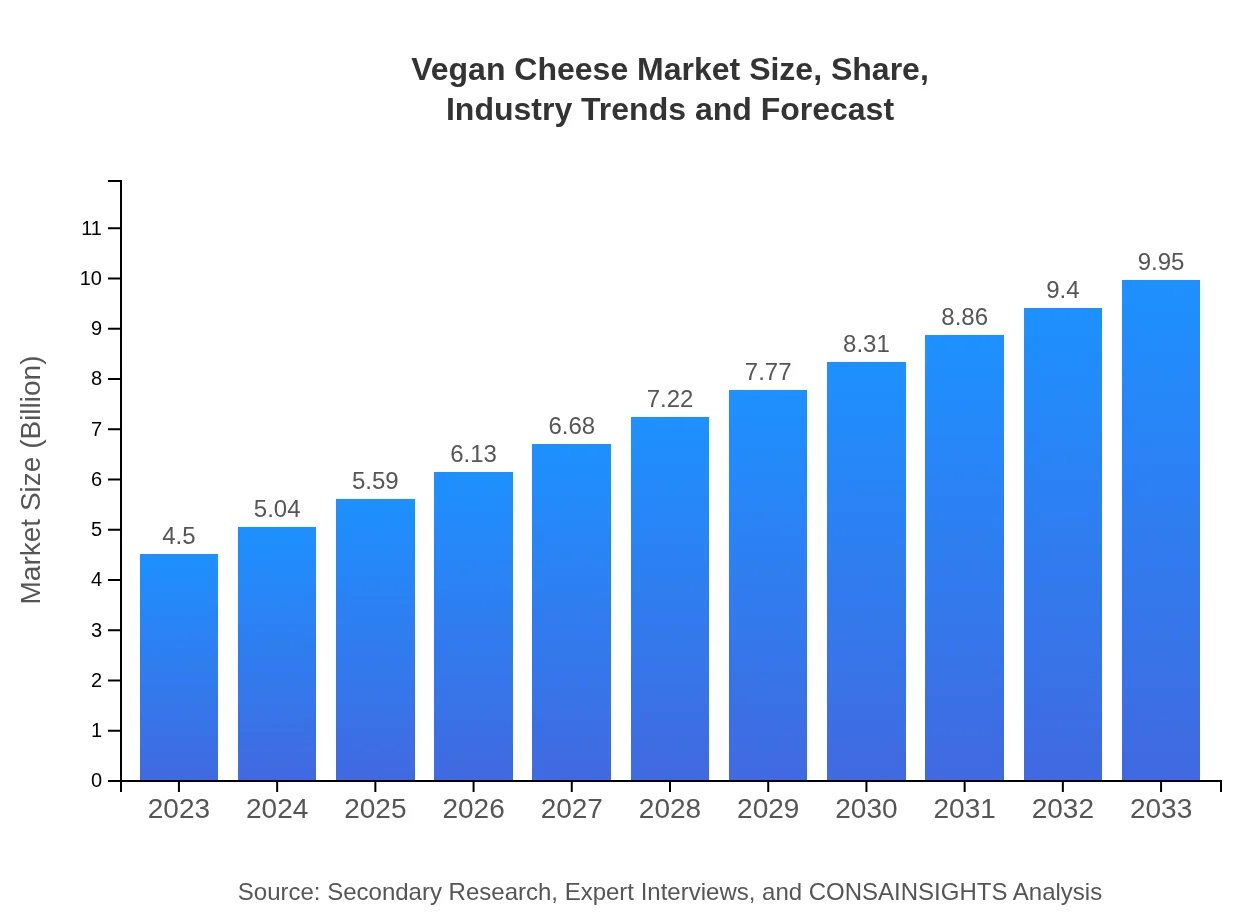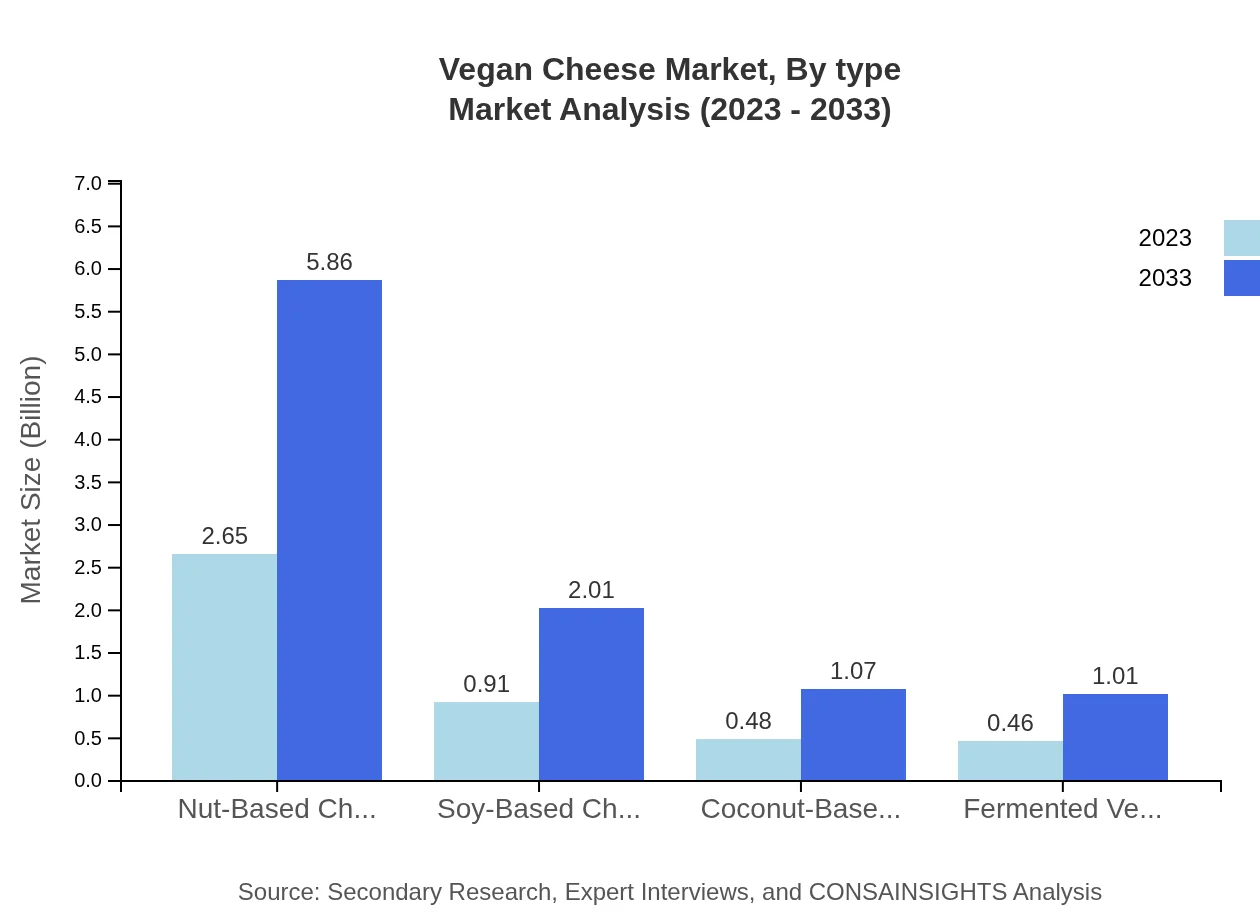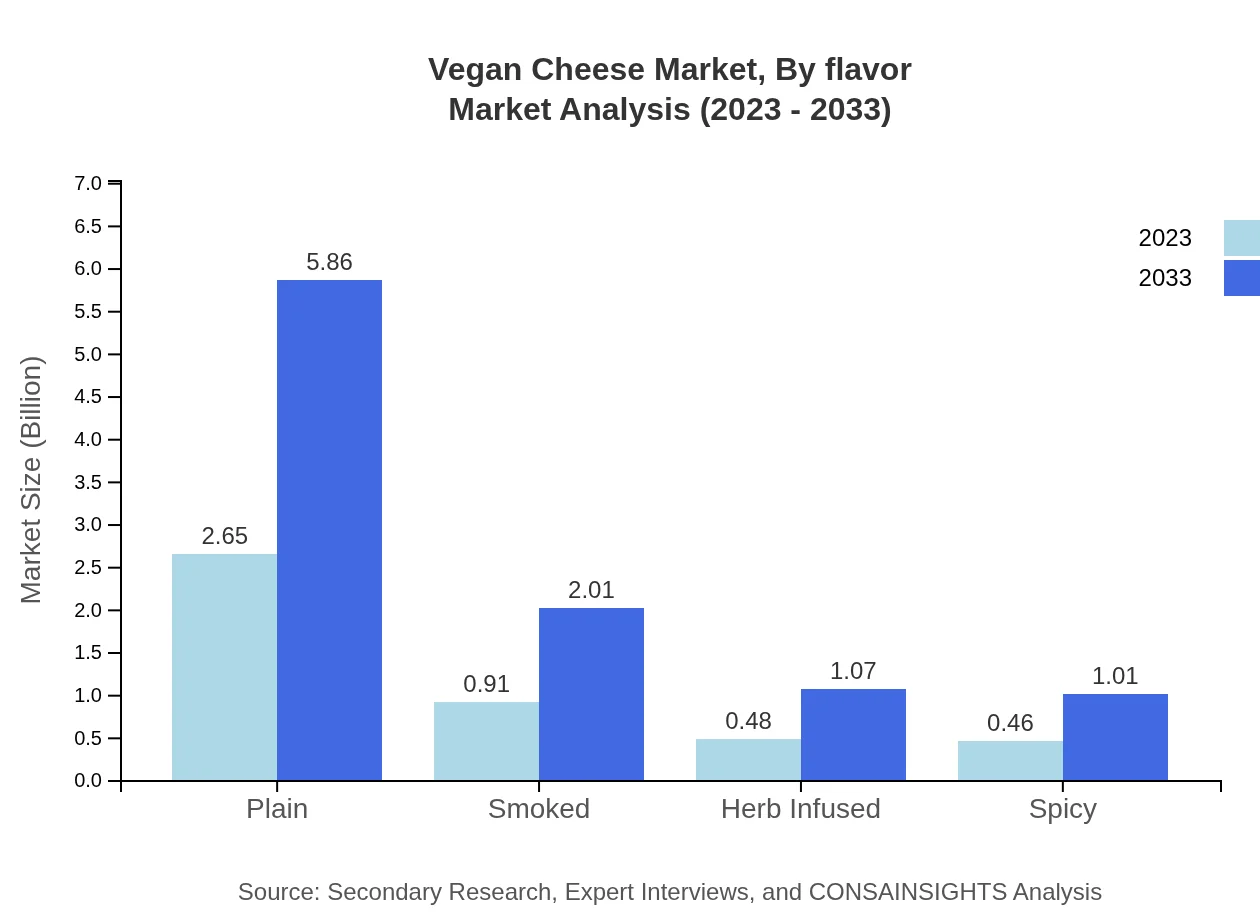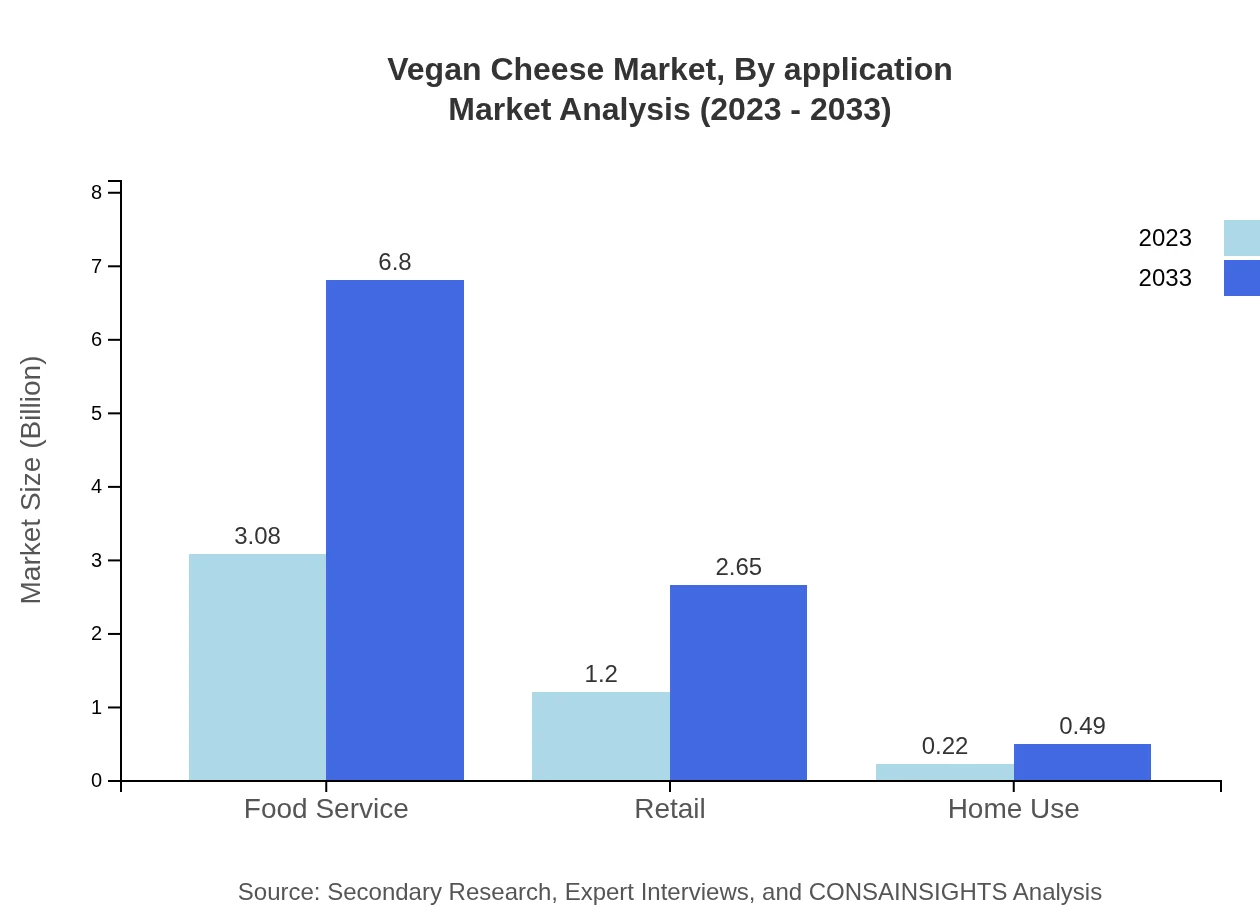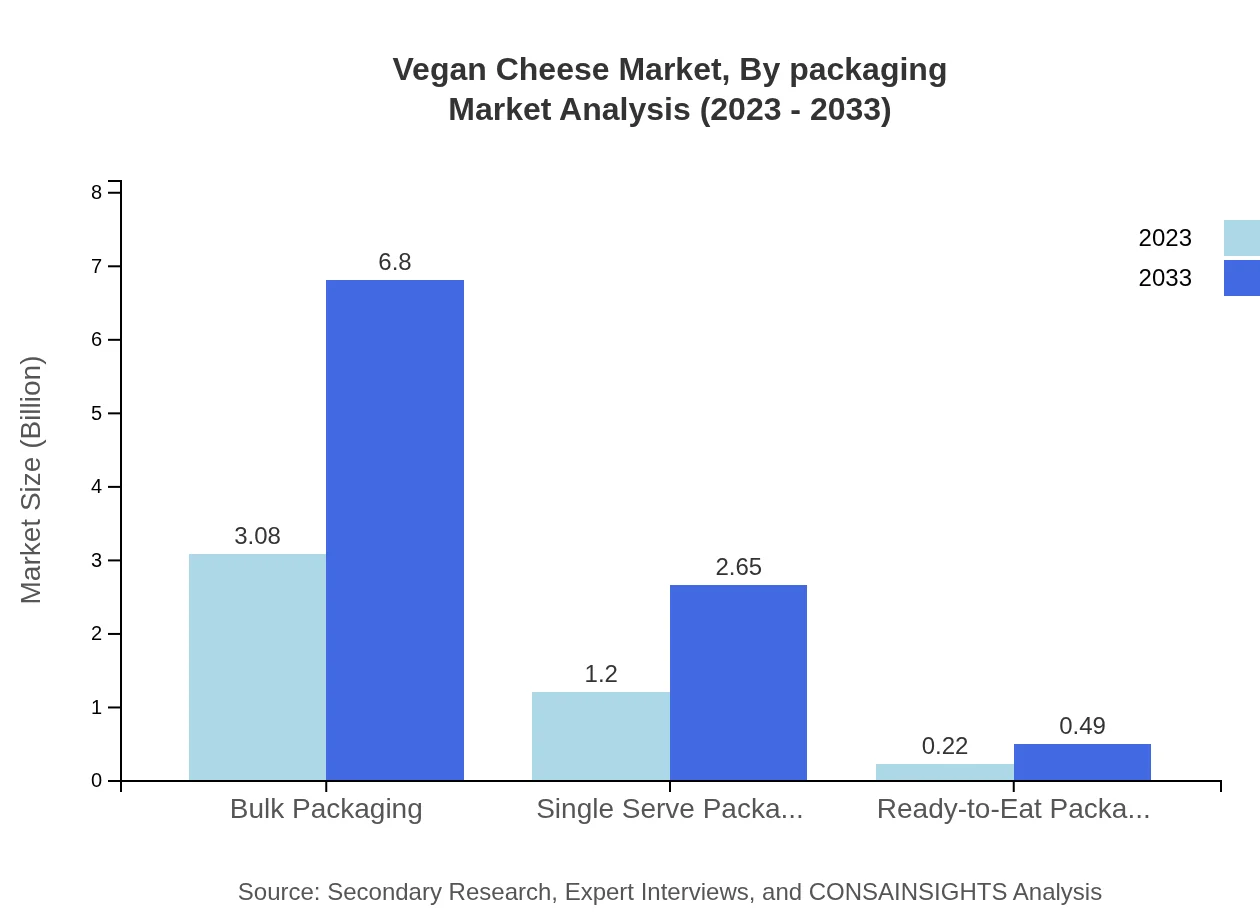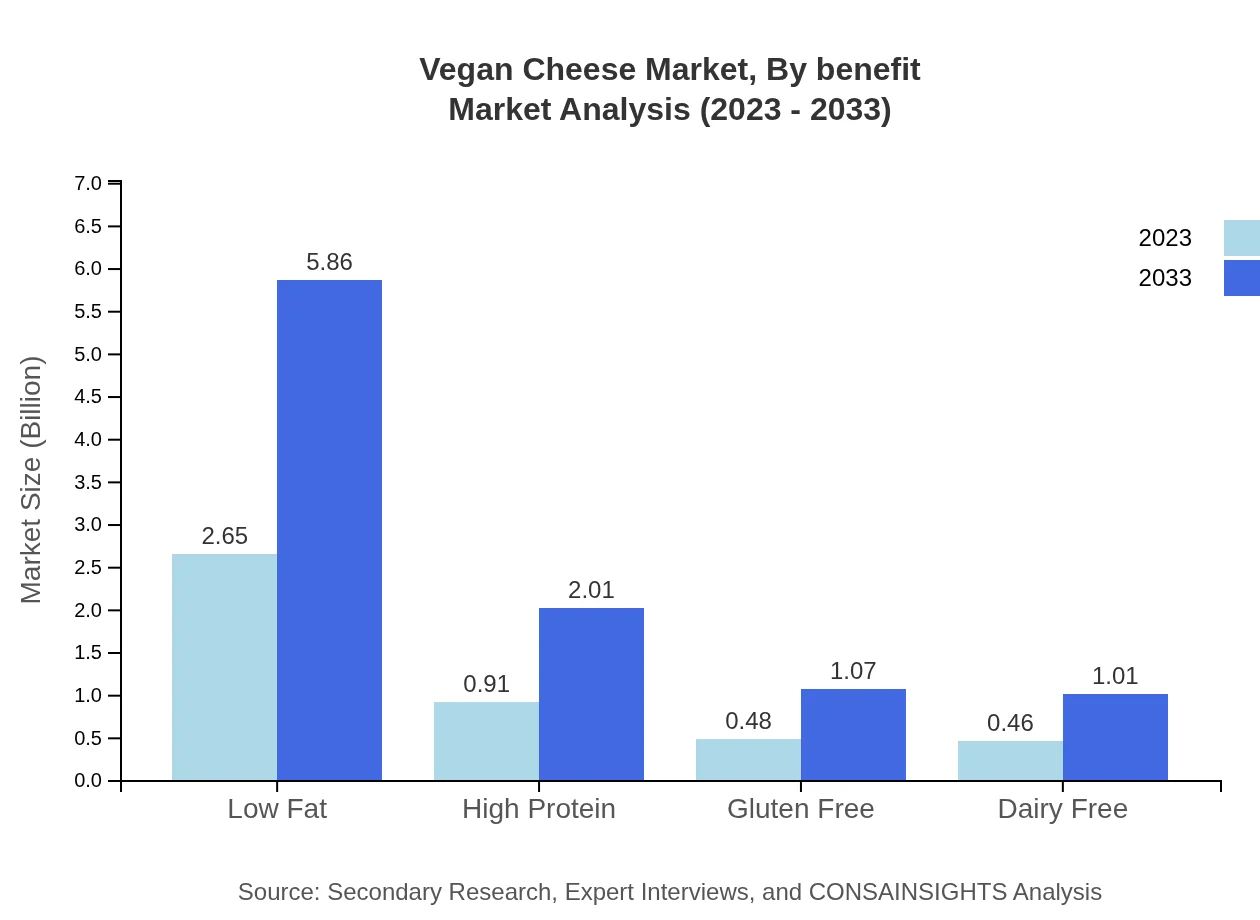Vegan Cheese Market Report
Published Date: 31 January 2026 | Report Code: vegan-cheese
Vegan Cheese Market Size, Share, Industry Trends and Forecast to 2033
This report provides an in-depth analysis of the Vegan Cheese market from 2023 to 2033, offering insights into market size, growth trends, regional dynamics, and competitive landscape.
| Metric | Value |
|---|---|
| Study Period | 2023 - 2033 |
| 2023 Market Size | $4.50 Billion |
| CAGR (2023-2033) | 8.0% |
| 2033 Market Size | $9.95 Billion |
| Top Companies | Daiya Foods Inc., Miyoko's Creamery, Violife, Follow Your Heart, Kite Hill |
| Last Modified Date | 31 January 2026 |
Vegan Cheese Market Overview
Customize Vegan Cheese Market Report market research report
- ✔ Get in-depth analysis of Vegan Cheese market size, growth, and forecasts.
- ✔ Understand Vegan Cheese's regional dynamics and industry-specific trends.
- ✔ Identify potential applications, end-user demand, and growth segments in Vegan Cheese
What is the Market Size & CAGR of Vegan Cheese market in 2023?
Vegan Cheese Industry Analysis
Vegan Cheese Market Segmentation and Scope
Tell us your focus area and get a customized research report.
Vegan Cheese Market Analysis Report by Region
Europe Vegan Cheese Market Report:
With an expected growth from $1.15 billion in 2023 to $2.53 billion by 2033, Europe continues to be a frontrunner in the Vegan Cheese market. The combination of cultural shifts towards plant-based diets and robust marketing by leading brands plays a significant role in this growth.Asia Pacific Vegan Cheese Market Report:
In the Asia Pacific region, the Vegan Cheese market is projected to grow from $0.86 billion in 2023 to about $1.90 billion by 2033. Increasing vegan population, health awareness, and lifestyle changes support this trend, with countries like Australia and India leading the charge in plant-based product adoption.North America Vegan Cheese Market Report:
North America represents one of the largest markets, growing from $1.51 billion in 2023 to approximately $3.34 billion in 2033. The demand is driven by health trends, ethical considerations, and the efforts of major retailers to stock diverse vegan cheese products.South America Vegan Cheese Market Report:
In South America, the market is expected to expand from $0.38 billion in 2023 to $0.85 billion by 2033. The rising awareness of vegan diets and increasing availability of vegan products contribute to this growth, although the market is still in its nascent stages compared to other regions.Middle East & Africa Vegan Cheese Market Report:
In the Middle East and Africa, the market is forecasted to rise from $0.60 billion in 2023 to $1.32 billion by 2033. The increasing interest in health and wellness, along with the rise of vegan trends, will enhance the appeal of plant-based products in this region.Tell us your focus area and get a customized research report.
Vegan Cheese Market Analysis By Type
The Vegan Cheese market constitutes several types including nut-based, soy-based, and coconut-based variants. Nut-based cheeses dominate the market with an anticipated size of $2.65 billion by 2033, accounting for 58.88% market share. Soy-based cheeses follow with a projected market size of $2.01 billion (20.24% share) in 2033. Coconut-based and fermented cheeses are also gaining traction, indicating consumer diversification in preference.
Vegan Cheese Market Analysis By Flavor
Flavor innovation is a key driver in the Vegan Cheese sector. Popular flavors include plain, smoked, herb-infused, and spicy. Plain vegan cheese is anticipated to maintain a leading position, expected to have a market size of $5.86 billion by 2033, maintaining a consistent share of 58.88% over the forecast period. The herb-infused and spicy varieties are gaining popularity, indicating market diversification.
Vegan Cheese Market Analysis By Application
The application of Vegan Cheese spans food service, retail, and home use. The food service sector is projected to grow substantially, reaching a size of $6.80 billion by 2033 and contributing to 68.37% of the market share. The retail segment follows, with an expectation to reach $2.65 billion, showcasing the growing trend of purchasing vegan cheese for home consumption.
Vegan Cheese Market Analysis By Packaging
Packaging plays a vital role in the Vegan Cheese market, with bulk packaging leading at $6.80 billion by 2033 (68.37% share). Innovations in single-serve and ready-to-eat packaging are anticipated to cater to the rising demand for convenient, on-the-go options, with single-serve expected to reach $2.65 billion.
Vegan Cheese Market Analysis By Benefit
Health benefits are paramount in the Vegan Cheese market, with gluten-free and high-protein options increasingly popular. In 2033, gluten-free vegan cheese is projected to reach a market size of $1.07 billion, while high-protein variants will approach $2.01 billion, each maintaining a steady share of around 10.75% and 20.24% respectively.
Vegan Cheese Market Trends and Future Forecast
Tell us your focus area and get a customized research report.
Global Market Leaders and Top Companies in Vegan Cheese Industry
Daiya Foods Inc.:
Daiya is a leading plant-based food company known for its diverse range of innovative vegan cheese products, including pizzas and creamy cheeses.Miyoko's Creamery:
Miyoko's is recognized for its artisanal, vegan cheeses and is a pioneer in creating plant-based dairy products from nuts.Violife:
Violife provides a vast selection of vegan cheeses that are popular in both retail and food service sectors, known for their taste and texture.Follow Your Heart:
This company offers a range of plant-based products, especially notable for their creamy cheese alternatives, focusing on sustainability.Kite Hill:
Kite Hill specializes in almond-based cheeses and creamers, emphasizing gourmet experiences and high-quality ingredients.We're grateful to work with incredible clients.









FAQs
What is the market size of vegan cheese?
The vegan cheese market is currently valued at approximately $4.5 billion with a projected Compound Annual Growth Rate (CAGR) of 8.0% from 2023 to 2033, indicating robust growth opportunities in the sector.
What are the key market players or companies in the vegan cheese industry?
Key players in the vegan cheese industry include notable brands such as Daiya Foods, Violife, Kite Hill, and Treeline Cheese. These companies are prominent for their innovative products and strong market presence.
What are the primary factors driving the growth in the vegan cheese industry?
The growth of the vegan cheese industry is driven by increasing plant-based dietary trends, rising health consciousness among consumers, and the growing availability of a variety of vegan cheese products in mainstream markets.
Which region is the fastest Growing in the vegan cheese market?
North America is the fastest-growing region in the vegan cheese market, with a market size expected to grow from $1.51 billion in 2023 to $3.34 billion by 2033, showcasing substantial consumer interest and demand.
Does ConsaInsights provide customized market report data for the vegan cheese industry?
Yes, ConsaInsights offers customized market report data for the vegan cheese industry, catering to specific client needs and preferences to deliver tailored insights and analysis.
What deliverables can I expect from this vegan cheese market research project?
Deliverables from this market research project include comprehensive reports, market analysis, growth forecasts, competitive landscapes, and detailed insights segmented by product type and region.
What are the market trends of vegan cheese?
Trends in the vegan cheese market include a rise in nut-based and fermented varieties, increased product innovation, and growing demand for health-oriented options such as gluten-free and high-protein cheeses.

